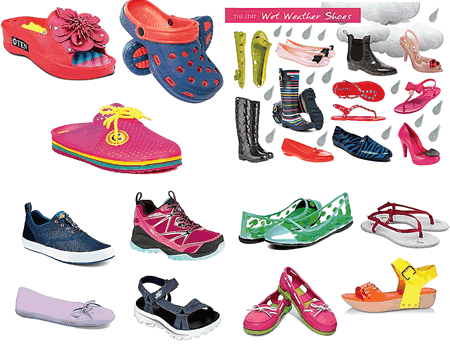Rafeeat Aliyu is a writer, documentary filmmaker, feminist and digital media consultant. A University of Durham International Relations graduate, a history nerd and the founder of AMDS Media, her speculative fiction and documentary films had distinguished her in the creative industry. In this interview by KINGSLEY ALUMONA, she speaks about her academic life in the United Kingdom, her writing and film career, and gender and sexual realities in Nigeria.
Briefly tell us about your life and experience while studying abroad. You have a BA in marketing and MA in international relations, how come you are more enthusiastic about history and gender issues?
I went to the UK when I was in my late teens to study. My degrees were shaped by what I wanted to do when I graduated. Back then, I wanted to work in the non-governmental sector and/or civil service. My interest in history and gender issues predates my entrance into university. As a student in secondary school, I recall spending hours in the library not studying but reading encyclopaedias. My areas of interest then were also history, but the books we had told of European history. I spent a lot of time reading about ancient Greece and Rome, ancient Egypt, medieval Western Europe and others. I also recall taking classes that taught me about Shaka Zulu, Abyssinia, the Swahili states, Mali and more.
Yet, it wasn’t until I was in the UK that I fully gained access to books about Nigerian history on my own terms. I remember I was shocked because what I was reading in those books was the opposite of what I had grown up hearing, particularly in regards to gender. In some cases, some of what I read hadn’t been told to me at all—for example, the subject of female husbands. When I read about women in the past, I felt deceived. I felt that more people needed to know what I was learning, hence my decision to start blogging. Gender has been a passion of mine for as long as I can remember. I grew up surrounded by women, and I remember calling myself a feminist in my early teens. That said, it wasn’t until I was studying abroad that I had the opportunity to acquaint myself with the works of black feminist scholars.
My appointment as Emir of Bichi not to spite Emir Sanusi II ― Emir Bayero
When and how did you stumble into creative writing? And, which genre comes easily to you?
As with my interests in history and gender, I have always been writing. And if what I wrote in primary school should tell it, speculative fiction and horror come easiest to me. Back then, I wrote a story about a family of ghosts from the perspective of the ghost daughter. In secondary school, I started writing an epic fantasy about four friends trying to save their fantastical kingdom. I found it easier to build new worlds and to write stories in them rather than writing stories set in the world that I knew. I suppose I found this world boring and wanted the freedom to create other worlds driven by different kinds of magic or science. These days, I still write fantasy but also science fiction. Oftentimes, I challenge myself to write in a genre that I adore but that I find difficult to write in. That was how I pushed myself to write horror and romance.
Tell us about AMDS Media. What type of contents do you create as a freelance writer and media consultant?
I incorporated a company to formalise my offerings as a content developer and strategist. I mostly do writing and editorial work for organisations that seek those services. It ranges from end-of-year/project reports, articles based on research and the like. I also produce documentaries under AMDS Media.
You co-edited the book ‘She Called Me Woman: Nigeria’s Queer Women Speak’ with Azeenarh Mohammed and Chitra Nagarajan. Tell us about the book and how the three of you came to co-edit it?
‘She Called Me Woman’ is a collection of true stories from lesbian, bisexual and trans Nigerian women. The book came about from what we the editors saw as a lack of documentation of stories from sexual minorities in Nigeria. Azeenarh, Chitra and I came to co-edit the book because we thought it was important to get queer voices out there and to address the misconception that these voices don’t exist in Nigeria. As a big fan of history, I hold dear the opinion that we can (and should) create something now to ensure that in the future people won’t look back and erroneously claim that so-and-so never existed in Nigeria due to a lack of documentation. We wanted to leave a mark with ‘She Called Me Woman’.
Many people are of the opinion that the book is intended to promote queer voices and rights. How would you react to that?
I would probably first ask these people to define what it means to ‘promote’. The intention of ‘She Called Me Woman’ is to show that there are queer people in Nigeria—in particular, queer women—despite the tendency for mainstream society to overlook, deny or disappear these realities. Nigerians need to stop acting like diverse sexualities and gender expressions only appeared with colonialism. This isn’t true. We just want Nigerians to know that queer women exist. Empathise with them and learn from their stories.
Given the fact that Nigerian society frowns on queer reality, are you not bothered that, being one of the editors of the book, people might start questioning your sexual orientation?
I am not bothered. For me, the need to have a book like ‘She Called Me Woman’ out there greatly outweighs people’s questions about my sexuality. I have been writing about such topics for a long time and so often I get nosy questions. However, that won’t stop me from doing the work I believe is necessary.
As a photographer and a documentary filmmaker, tell us about ‘Beyond Tolerance’ you co-produced with Amaka Vanni. What inspired the both of you to produce it?
Similar to my work editing ‘She Called Me Woman’, we saw that there was a section of Nigerian society that has been misunderstood and maligned. I wanted to know why and to address that. In this case, the focus is on traditional faith systems—in particular Ifa and Odinani. ‘Beyond Tolerance’ is a documentary that offers a glimpse into the lives of young Nigerians who practise traditional spirituality. Traditional spirituality is often portrayed as evil, diabolic and backwards in popular movies and places of worship. That is the dominant narrative. We wanted to challenge that by going to meet traditionalists and hearing their own stories. It was an amazing, eye-opening experience. I’m blessed to know a like-minded soul in Amaka, who also understands the importance of addressing misconceptions through media. We plan to release even more documentaries exploring socio-cultural topics in Nigerian society that many prefer to sweep under the rug.
With the type of work you do, would you consider yourself more as a feminist or an activist? And, what are you currently working on?
I do consider myself a feminist and womanist but hesitate to label myself an activist. I’m currently working on my epic fantasy novel, as well as a number of documentary projects.
What is your greatest challenge as a media content producer? And, what do you like doing at your leisure?
Maintaining a constant stream of clients and funding for projects are my two greatest challenges. I also find the slow movement on projects that are in the process of being realised to be incredibly frustrating. I like to read, watch movies or bake at my leisure.
What advice do you have for young people, especially the female ones, who are aspiring to be like you?
Build a network of women who will support you and have your back. Be supportive of others in turn.






